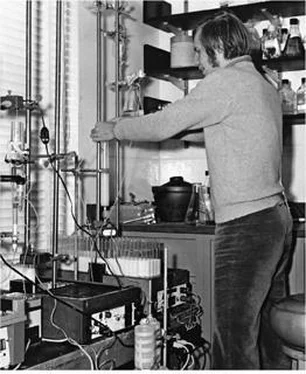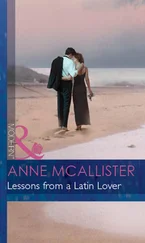James Watson - AVOID BORING PEOPLE - Lessons from a Life in Science
Здесь есть возможность читать онлайн «James Watson - AVOID BORING PEOPLE - Lessons from a Life in Science» весь текст электронной книги совершенно бесплатно (целиком полную версию без сокращений). В некоторых случаях можно слушать аудио, скачать через торрент в формате fb2 и присутствует краткое содержание. Жанр: Биографии и Мемуары. Описание произведения, (предисловие) а так же отзывы посетителей доступны на портале библиотеки ЛибКат.
- Название:AVOID BORING PEOPLE: Lessons from a Life in Science
- Автор:
- Жанр:
- Год:неизвестен
- ISBN:нет данных
- Рейтинг книги:5 / 5. Голосов: 1
-
Избранное:Добавить в избранное
- Отзывы:
-
Ваша оценка:
- 100
- 1
- 2
- 3
- 4
- 5
AVOID BORING PEOPLE: Lessons from a Life in Science: краткое содержание, описание и аннотация
Предлагаем к чтению аннотацию, описание, краткое содержание или предисловие (зависит от того, что написал сам автор книги «AVOID BORING PEOPLE: Lessons from a Life in Science»). Если вы не нашли необходимую информацию о книге — напишите в комментариях, мы постараемся отыскать её.
AVOID BORING PEOPLE: Lessons from a Life in Science — читать онлайн бесплатно полную книгу (весь текст) целиком
Ниже представлен текст книги, разбитый по страницам. Система сохранения места последней прочитанной страницы, позволяет с удобством читать онлайн бесплатно книгу «AVOID BORING PEOPLE: Lessons from a Life in Science», без необходимости каждый раз заново искать на чём Вы остановились. Поставьте закладку, и сможете в любой момент перейти на страницу, на которой закончили чтение.
Интервал:
Закладка:
At last I saw no point in hanging around and went back to the Dupont Plaza Hotel, where I was staying to be near the Szilards, rather than the Hay-Adams Hotel, across Lafayette Park from the White House, which was inexpensive in those days and where I had stayed on earlier Washington trips. Always looking forward to his next meal, Leo
insisted that Trudy and I quickly go with him to the Rathskeller, across Dupont Circle down Connecticut Avenue. There he obsessed about how one might get Lyndon Johnson to end the nuclear arms race. I didn't have the heart to stay in town and see the funeral cortege that would soon be making its solemn way down Pennsylvania Avenue. Abjectly I flew back to Boston the next morning.Though Bundy stayed on as national security advisor, Jerry Wiesner soon resigned to return to MIT as dean of science. Almost eight months were to pass before our cotton insects report finally was released in a gutted form. Gone were our recommendations to spend more on cotton research facilities and supplies and less on salaries. Unless many more entomologists were trained to help bring sawier approaches to the fields, we saw no chance of American cotton's escaping its total dependence upon pesticides. But we were told that the new president didn't want us to recommend policies requiring more money for cotton insect research. With our final report likely to have an impact on no one, I saw no reason to oppose its new, more pedestrian opening sentence, “Cotton is the largest cash crop in the United States.”
My last day as a $50-a-day PSAC consultant occurred when the Biological and Chemical Warfare subpanel was brought together to evaluate a proposed release of several infectious agents over the Pacific Ocean southwest of the Hawaiian Islands to test whether they would infect endemic Pacific birds. If no such infections occurred, VEE, for example, would finally get a true green light for appropriate military use. When I saw that a lieutenant general had come to preside over the briefing, I knew the army strongly wanted these tests to take place. Already they had co-opted the Smithsonian Institution for ornithological help. That morning I was the only panel member in opposition, in particular arguing that VEE was not an “incapacitating” agent. It killed the very young and very old and should never be sprayed over any civilian-populated areas. Talking later to Vincent McRae, I got the distinct impression that the lieutenant general had wanted a unanimous vote in favor of his Pacific tests. So I was not surprised never again to be called back to the Executive Office Building.
More than a year later, in early June 1965,1 was invited to a reception
held for Presidential Scholars—those honored as the cream of the nation's graduating high school seniors, under a program LBJ invented—on the south lawn of the White House. I found myself next to the ice skater Peggy Fleming, who in turn was next to General William Westmoreland. Upon the dais Lucy Baines Johnson talked about how we should now strongly support our American soldiers, no longer in Vietnam merely as “observers” but now in frighteningly larger numbers as combat troops. Later going through the reception line, I watched Senator J. William Fulbright attempt civility when briefly speaking to the president. Equally gracious then was Lady Bird Johnson, leading some of us inside to see the executive mansion's reception rooms. I realized at that moment that an era had passed and that seeing the inside of the White House was a now-or-never opportunity.Remembered Lessons
1. Exaggerations do not void basic truths
Books, like plays or movies, succeed best when they exaggerate the truth. In communicating scientific fact to the nonspecialist, there is a huge difference between simplifying for effect and misleading. The issues that scientists must explain to society—then DDT contamination, today global warming or stem cell technology, say—require far too many years of training for most people to take hold of them in all their nuances. Scientists will necessarily exaggerate but are ethically obliged to society to exaggerate responsibly. In writing my textbooks I realized that emphasizing exceptions to simple truths was counterproductive and that use of qualifying terms such as probably or possibly was not the way to get ideas across initially. So while some of Rachel Carson's facts have proved less solidly grounded than she first believed, the truth is that man-made pesticides were spreading through the food chains so fast that they were very likely to reach levels dangerous to humans. No good purpose other than the bottom line of the chemical industry would have been served hedging that fact.
2. The military is interested in what scientists know,
not what they think
PSAC's briefing by Fort Detrick's staff focused on whether proposed biological warfare agents would be effective if deployed by either our military or the Soviets'. Whether these weapons should be deployed was not open for discussion. And so the question as to whether VEE should then be seen as a tactical or strategic weapon was never brought before us. I naively assumed that no one would seriously consider using it in any capacity in the near future, but what may seem absurd to a civilian can be perfectly plausible in a world where options are rarely taken entirely off the table. It is hardly surprising we were never told that the VEE was almost ready for military deployment. We would have gone instantly to McGeorge Bundy, if not the president, to let him know of our opposition to its use at any time. Whether either Bundy or JFK knew how advanced the nation's VEE program was I still don't know. My guess is that they knew no more than our PSAC panel. Top-secret clearance should never be confused with “need to know.” I was granted the former but only through my natural curiosity about a building with no apparent function did I learn that one of Fort Detrick's better-funded missions was to advance CIA assassination possibilities.
4. Don't back schemes that demand miracles
Ridding our southern states of the boll weevil by exposing female weevils to irradiated sterile males was a proposal that instantly smelled of nonsense to us experts. No one who briefed us was prepared to say how much it might cost. Even worse, almost all the small pilot tests done to date had failed, with their proponents now saying more research was needed. The sterile male project had an interest in preserving the congressional perception that the Boll Weevil Research Lab was on the verge of something big. Congressman Jamie Whitten could then bask in its supposed glory. Those reading our report knew that we thought the local research was going nowhere, but ultimately it is possible to ignore what even the government's own scientific advisers think. Never mind that producing enough sterile males to blanket the nation's cotton-growing regions might cost more than the profit from an average year's crop.
5. Controversial recommendations require political backing
Our PSAC panel's conclusion that pesticides pose a threat to the environment reached the public only through its release by President Kennedy. If he had owed a major debt to the chemical industry, his staff might have seen to it that passages damaging to those interests were toned down, leaving open the question of whether Silent Spring's argument had merit, and dampening the demand for corrective action. Happily, JFK owed no such political debt, and no White House pressure ever came to bear on us. In contrast, President Johnson's staff saw political harm in a White House report that said the nation's cotton farmers needed more than heavy pesticide spraying to keep their fields financially viable. When our badly gutted cotton insect report came out, most panel members realized we had toiled to no useful end.
Читать дальшеИнтервал:
Закладка:
Похожие книги на «AVOID BORING PEOPLE: Lessons from a Life in Science»
Представляем Вашему вниманию похожие книги на «AVOID BORING PEOPLE: Lessons from a Life in Science» списком для выбора. Мы отобрали схожую по названию и смыслу литературу в надежде предоставить читателям больше вариантов отыскать новые, интересные, ещё непрочитанные произведения.
Обсуждение, отзывы о книге «AVOID BORING PEOPLE: Lessons from a Life in Science» и просто собственные мнения читателей. Оставьте ваши комментарии, напишите, что Вы думаете о произведении, его смысле или главных героях. Укажите что конкретно понравилось, а что нет, и почему Вы так считаете.












